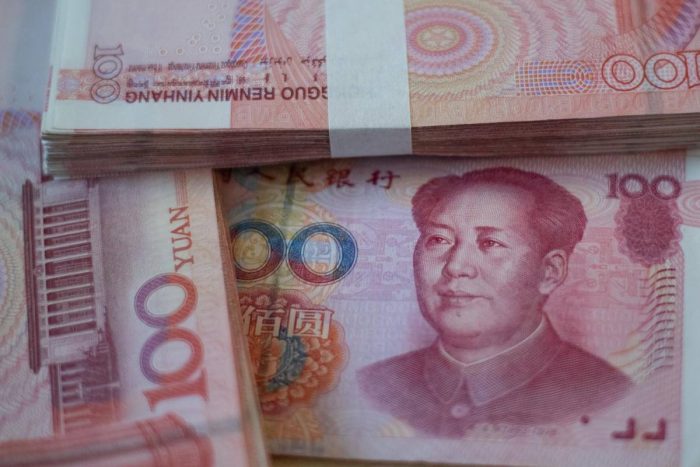China announced “two new” initiatives on Friday to be funded by ultra-long-term bonds that aim to revitalize its faltering economy.
A state planner told a press conference that a sharp increase in funding from the treasury bonds will be used as fiscal stimulus to boost business and consumer spending this year.
“The size of ultra-long special government bond funds will be sharply increased this year to intensify and expand the implementation of the two new initiatives,” Yuan Da, deputy secretary-general of National Development and Reform Commission (NDRC), said.
ALSO SEE: Chinese Electric Vehicles Selling Well in Non-Tariff Norway
The two new initiatives include a subsidy programme for durable goods, where consumers can trade-in old cars or appliances and buy new ones at a discount, and a separate one that subsidises large-scale equipment upgrades for businesses.
Households also will be eligible for subsidies to buy three types of digital products this year, such as cellphones, tablet computers, smart watches and bracelets, Yuan said.
In December, the NDRC said Beijing had fully allocated all proceeds from 1 trillion yuan in ultra-long special treasury bonds in 2024, with about 70% of proceeds financing “two major” projects and the remainder going towards the new initiatives.
China will also increase funding from special treasury bonds and expand the scope for the major initiatives, said Zhao Chenxin, vice head of the state planner, at the press conference.
The government has approved projects for 2025 worth 100 billion yuan under the major initiatives in advance, he said.
The major programmes refer to projects such as construction of railways, airports and farmland and building security capacity in key areas, according to official documents.
The world’s second-biggest economy has struggled over the past few years due to a severe property crisis, high local government debt and weak consumer demand.
Exports, one of the few bright spots, could face more US tariffs under a second Trump administration.
Reuters reported last month that authorities have agreed to issue 3 trillion yuan worth of special treasury bonds in 2025, which would be the highest on record.
Budget deficit of 4% of GDP
Commenting on the 2025 economic growth target, Yuan said China will balance its needs along with medium- and long-term plans.
Reuters also reported last month that Chinese leaders have agreed to raise the budget deficit to 4% of gross domestic product (GDP) in 2025, its highest on record, while maintaining an economic growth target of around 5%.
“We are fully confident of driving continued economic recovery this year” even as it faces new challenges, Yuan said, adding that China has ample policy space to underpin growth this year.
China’s central bank is likely to cut interest rates from the current level of 1.5% “at an appropriate time” in 2025, the Financial Times reported on Friday citing comments the bank made to the newspaper, as part of efforts by policymakers to shore up growth.
- Reuters with additional editing by Jim Pollard
























